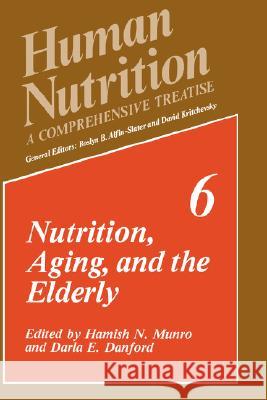Nutrition, Aging, and the Elderly » książka
Nutrition, Aging, and the Elderly
ISBN-13: 9780306430473 / Angielski / Twarda / 1989 / 396 str.
The proportion of the population over 65 years of age is increasing steadily in most industrialized countries. In the United States the proportion of elderly people has risen from four percent in 1900 to 11 % in 1978, and is projected to be 14% by the year 2000. The occurrence of debilitating chronic diseases in the elderly increases with each additional year. These diseases, along with the natural loss of tissue function that occurs throughout adult life, impose a heavy burden on the health care system. Nutri tion plays an important etiologic role in many of these degenerative changes. Conse quently, the aging segment of the population presents a challenge to the nutrition scientist, who should be able to recommend optimal intakes of nutrients to minimize the functional losses associated with aging and to optimize the health of those already elderly. This sixth volume in the series Human Nutrition: A Comprehensive Treatise provides a conspectus of the various interactions of nutrition with the aging process and a comprehensive survey of current knowledge of the amounts of individual nutrients needed by the elderly. The volume begins with a general survey of the multifaceted relationship of nutrition to aging, followed by four chapters on how nutrition can affect age-related changes in selected body functions. The next six chapters cover the avail able evidence regarding the needs of the elderly for dietary energy, protein, calcium, trace elements, vitamins, and fiber."











